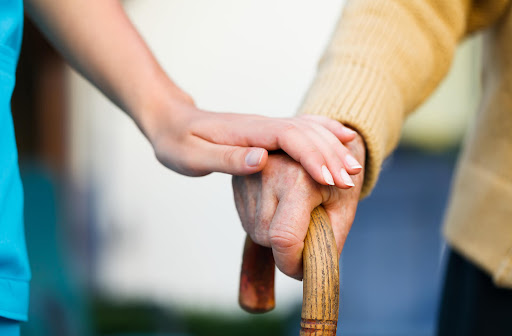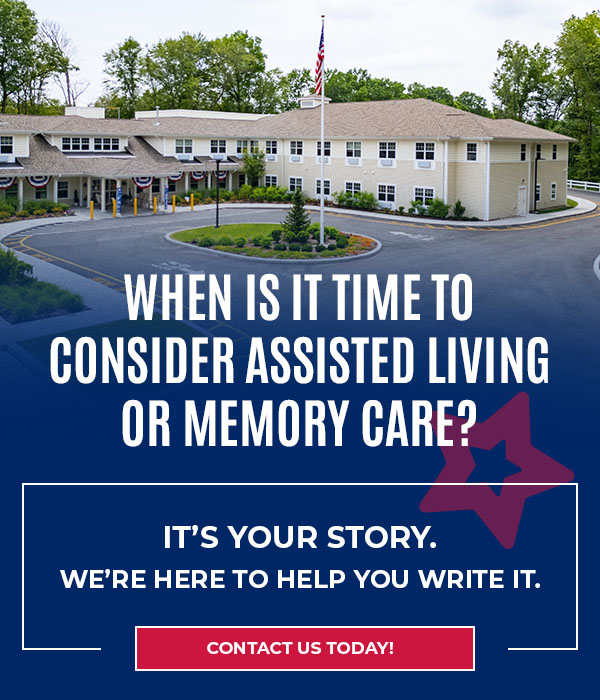Later in life, your loved one may need your help with entering a new stage of life and new community. This transition period becomes even more critical when your loved one is dealing with cognitive difficulties. A memory care lifestyle may be the best option.
Let’s look at how to help transition your loved ones into a memory care lifestyle when they’re dealing with Alzheimer’s disease.
What Is Alzheimer’s Disease?
Alzheimer’s disease is a progressive cognitive condition and is the most common form of dementia.
The early signs of Alzheimer’s disease include forgetting recent events or conversations. Unfortunately, this disease gets progressively worse and affects the parts of the brain that control thought, memory, and language.
Symptoms of Alzheimer’s disease can include:
- Memory loss affecting daily activities
- Trouble with familiar tasks
- Issues with speech and writing
- Decreased personal hygiene
- Mood and personality changes
- A lack of appetite
Alzheimer’s disease spans several years, and usually, your loved one will go through 7 stages. Alzheimer’s is a progressive disease, so it’s crucial for you to sit down with your loved one and consider a memory care lifestyle.
What Is Memory Care?
Your loved ones’ health and quality of life are important, and getting the best care possible for an aging loved one is a priority. Aging can sometimes lead to memory and cognitive difficulties such as Alzheimer’s disease, making living on their own next to impossible.
That’s where a memory care lifestyle can make all the difference.
Memory care supports your loved ones with personalized and considerate care services. Your loved one’s needs are essential, and their memory care community will build a lifestyle around their specific needs.
You can rest easy as your loved one will be treated with respect, dignity, and compassion.
Above all else, your loved one’s quality of life should be prioritized—some amenities and services they can expect:
- 24/7 onsite personal care staff
- Personal care assistance for residents
- Daily light housekeeping
- Support groups
- Medication management program
- Specially trained staff
- Secured environment
When it’s time to have that conversation with a loved one, you can lean on the knowledge that they’ll be taken care of in a memory care community.
Transitioning to Memory Care
Transitioning someone with Alzheimer’s into a memory care community can require tough conversations. Your understanding and patience will be essential. It can be challenging to move into a new or unfamiliar environment, so making the transition as comfortable as possible is vital.
Plan Ahead With Your Loved One
Alzheimer’s disease is a progressive cognitive disorder, and as a result, planning ahead can seem complicated but is necessary. If possible, talking with your loved one about what living arrangements would be comfortable for them can help you prepare and find the right community.
If you’ve found the right community, find time to speak with the staff and share some details about your loved one about their hobbies and interests. This process can help make the transition more accessible when the time comes to make the move.
Create Some Familiarity
If you know what your loved ones living space is going to look like and you have access—it’s a good idea to inquire if you can add some personal touches to make them feel more comfortable and at home.
Decorating your loved one’s new living space with familiar belongings and memories can help them transition and embrace their new home.
Normalize The Moving Day
The moving day doesn’t have to be filled with a send-off and a somber tone. It’s a great idea to approach it like any other day and accompany your loved one to their new community. Helping your loved one settle in can help them relax and not feel the magnitude of a big change as much.
When you get them settled in and are ready to leave, the staff can help your loved one engage in meaningful activities while you leave for the day.
It may take some time for both you and your loved one to adjust, and this is completely normal—your presence will be helpful, so making time to visit can brighten up your loved ones’ day.
The Community Experience
A shift in lifestyle can be challenging to come to terms with. Your loved one needs time to become comfortable with their new environment. Still, you can rest easy knowing they’ll be supported every step of the way in memory care.
Get in contact with a professional today to learn more about the transition to a memory care lifestyle.





